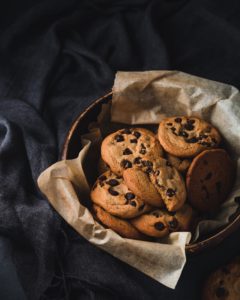A Cookie-Cutter Copyright Claim Must Have an Extra Ingredient to State a Violation of Section 75-1.1

Ellis & Winters
If you’ve ever pulled up N.C. Gen. Stat. § 75-1.1 on WestLaw or Lexis, you may have noticed that the statute is flagged as “unconstitutional or preempted.” This notation is there, in part, due to a 2008 case that holds that the Copyright Act of 1976 (17 U.S.C. §§ 106, 501) preempts certain section 75-1.1 claims.
But not all section 75-1.1 claims are preempted when a federal copyright claim is involved. We’ve written about how courts will look at the type of conduct alleged to determine if the section 75-1.1 claim is based on a cookie-cutter copyright claim, or if an extra ingredient sets the state law claim apart. For instance, North Carolina’s federal courts have held that a section 75-1.1 claim is not preempted by the Copyright Act if the section 75-1.1 claim is based on a trade dress violation, a trademark infringement or trade secret misappropriation claim, or the breach of a confidential relationship. Even where a defendant had obtained the plaintiff’s designs, the U.S. District Court for the Middle District of North Carolina has held that an allegation that the defendant had not paid a broker’s fee sets the claim apart from the typical copyright infringement claim.
A recent decision from the Middle District of North Carolina, however, provides a classic taste of copyright preemption.
The Recipe: Siler v. Lejarza
Plaintiff David Siler owns Distinctive HR, a company that sells test-preparation materials for human-resources certification exams. Defendant Elga Lejarza purchased materials from Siler’s company in 2011, 2016, and 2017. Lejarza passed her human-resources certification exam in 2017. Then she purchased the testing materials again in 2018. Siler sued Lejarza upon learning that Lejarza was re-using Siler’s materials to run her own consulting and training firm.
Siler’s complaint against Lejarza asserted claims based on two federal statutes: the Copyright Act (17 U.S.C. §§ 106, 501) and the Lanham Act (15 U.S.C. § 1125). He also brought three state law claims—copyright infringement, breach of contract, and violation of section 75-1.1. Lejarza moved to dismiss the state law claims, arguing that the claims were preempted by the federal Copyright Act.
In particular, Lejarza argued that the section 75-1.1 claim was “merely a copyright infringement claim in disguise.” Siler responded that his section 75-1.1 claim was not a cookie-cutter copyright claim but instead stated a claim for “palming off.” He argued that an allegation of “palming off” included an extra ingredient that was qualitatively different from a copyright infringement claim.
A Hand in the Cookie Jar? What is “Palming Off”?
“Palming off” and “reverse palming off” are two related concepts that generally arise in intellectual property actions. While palming off states an extra ingredient distinct from copyright infringement, claims for reverse palming off are generally preempted by federal Copyright Act claims.
“Reverse palming off”—also known as reverse passing off—occurs when someone removes a name or brand from a product and sells that product under a different name or in an unbranded way. For example, “reverse palming off” occurs if I were to swipe a dozen delicious chocolate chip cookies from the lobby of my local DoubleTree by Hilton, stamp my own name on the packaging, and sell them to buyers. This is also the classic case of copyright infringement. DoubleTree could allege a harm because it would stand to lose goodwill and potential income from buyers who might otherwise have made their hotel booking based on the cookies alone.
“Palming off”—also known as passing off—occurs when someone misrepresents the source of their products. For instance, if I were to bake mediocre cookies and sell them to buyers, claiming that they were made by DoubleTree, I would be palming them off. Palming off harms DoubleTree’s brand for a different reason—the buyers could have a bad taste in their mouth from my cookies and never stay at a DoubleTree again.
Thus, both reverse palming off and copyright infringement potentially occur when you take another’s product and sell it under your own brand name. But palming off alleges an extra ingredient that sets it apart from copyright infringement—using someone else’s brand name to sell your own products.
How the Siler Cookie Crumbled
The Middle District of North Carolina held that Siler had not alleged palming off, but rather, reverse palming off—the classic copyright claim. Lejarza was selling Siler’s copyrighted material without giving credit to Siler. Citing Rutledge, the Court concluded that “the Copyright Act routinely preempts [reverse palming off claims] brought under state unfair and deceptive trade practice statutes.” For that reason, it dismissed Siler’s section 75-1.1 claim.
So, be sure not to file a half-baked section 75-1.1 claim that just mimics a copyright claim—make sure you can throw in some extra ingredients. And if you’re defending a section 75-1.1 claim, don’t forget to check the recipe of the plaintiff’s section 75-1.1 claim—because failure to raise federal preemption by the Copyright Act in your answer could waive this affirmative defense.
Author: Preetha Suresh Rini


